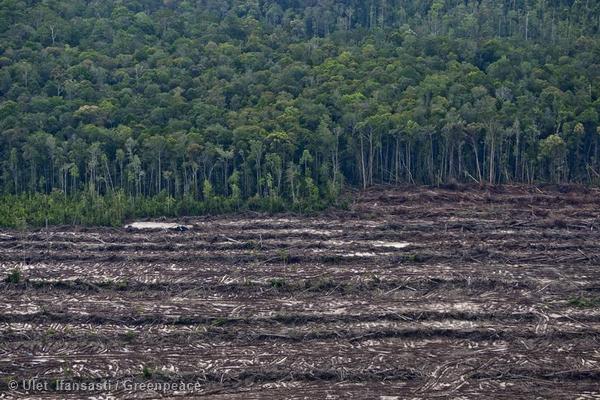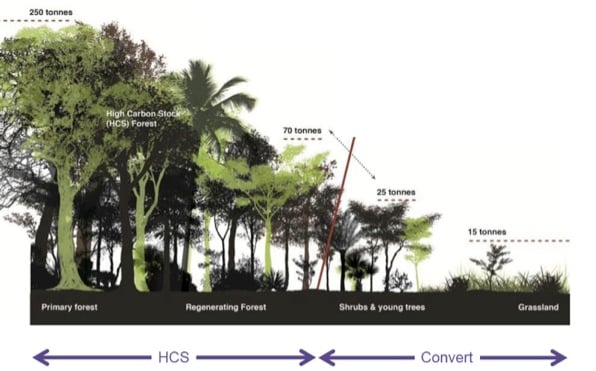Greenpeace has an eye for spotting greenwashers. When a group of large palm oil producers including Sime Darby, KLK, and Asian Agri decided this week that it was time to announce their “significant sustainability initiative” our alarms bells were set off.
Significant”, like“beautiful”, is a relative term.
Just last week a study showed Indonesias forests are disappearing faster than anywhere else in the world, and our own analysis has shown how deforestation for plantations for things like palm oil are largely responsible for forest fires and devastating air pollution. Its no wonder then that companies are lining up to appear as if they are taking action.
The so-called Sustainable Palm Oil Manifesto is a document that contains new commitments from these companies to go beyond the industry’s sustainability standards set by the Roundtable on Sustainable Palm Oil (RSPO) – and according to their own words “commits its signatories to no deforestation”.
But here is the problem: “no deforestation”seems to also be a relative term for these companies.
These companies claim to support the adoption of an approach know as the High Carbon Stock approach, which has been developed as a practical solution to decide which areas can be developed into plantations and which should be set aside for conservation.
The HCS approach is a tool thattakes into account environmental, social and economical aspects to allows companies, governments and communities to define where, among these various vegetation layers, you set the cut – literallyseparatingthe lands that will be developed into plantations from those that will be set aside for conservation.
So far so good.
Butinstead of adopting the existing definition of High Carbon Stock (which by the way are already being tested and starting to be implemented by the likes of Asia Pulp & Paper, Golden Agri Resources, Cargill and Wilmar) these companies are putting in place a review of the approach. The drawback is they are doing nothing while the review is ongoing.
We call this “talk and log”.
This is especially troublesome as Indonesia surpassed Brazil, as the number 1 indeforestation, with 8.400 km2 of forest destruction between 2011 and 2012, an areas similar in size to Puerto Rico.
There are two ways of addressing this problem. One would be changing their statement from“no deforestation”to“some deforestation”.But that wouldn’t really make sense, as their clients – companies like Johnson & Johnson, Unilever, Colgate-Palmolive, Kellogg and Mars – are all demanding palm oil that’s free of forest destruction.
The other way of addressing this issue would be to make a real commitment to no deforestation.
To show they are serious about addressing deforestation, we have asked the group to immediately stop destroying potential High Carbon Stock forests while the HCS approach is further refined. But they have so far failed to respond to our request. Instead they decided to publicly announce their initiative.
The existing High Carbon Stock definition is scientifically sound and is already being implemented by major palm oil and pulp and paper producers around the world. While further refining of the approach isvalid, this cannot be used as a reason to justify further forest destruction.
Our message to the consumer companies which have promised consumers around the world deforestation and conflict free palm oil is clear: do not to be fooled by half measures. Now, these consumer companies must use their power in the market to demand meaningful action from their palm oil suppliers.
Failing to do so will mean they are willing to be part of the “talk and log” initiative, and to fool their customers.




